Democracy

The two most critical requirements for democracy are freedom of the press and an educated citizenry.
The one informs the people and brings government and power into the open. The other enables people to comprehend information and to discuss opinions without resorting to panic and violence.
Power elites have declared war on both requirements.
These include “big money” oligarchs, such as the people who gather around the Koch brothers, politicians who cater to the wealthy in exchange for campaign contributions and government officials who have come to identify with the corporate and financial interests they regulate.
Through acquisitions of newspapers and television outlets and intimidation of reporters, these power elites seek to turn the press into propaganda vehicles and to distort information.
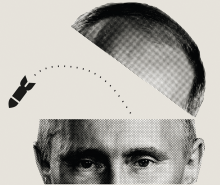
FOR MORE THAN two centuries, the United States has been the proudest example of democracy in the world. Maybe not the best, but definitely the proudest. Oh sure, we’ve hit some rough patches over the decades, mainly in dealing with our native peoples and other ethnic minorities. Also with women, the poor, the falsely accused, the unemployed, and people who aren’t bankers. But let’s just call those growing pains.
For the most part, America has been that shining city on a hill, and by America, of course, I don’t mean Canada or Mexico, or the other countries whose names I forget, most of which don’t have many good hills to shine from anyway.
But I’m not talking about geography, I’m talking about pride. The pride that comes from being number one in democracy, despite being number 55th in infant mortality and 35th in math. Okay, so we don’t test well. But we’re proud anyway. And we’re still number one in Bible science! [High five!]
But lately, because of continued dysfunction on Capitol Hill, people are starting to whisper that democracy in the United States may have lost some of its shine, like we’re “hiding it under a bushel,” as it says in the old Christian campfire song of my youth. (We also sang “With Jesus in My Boat I Can Ride Out the Current Economic Downturn,” and “Children, Go Where I Text Thee.”)
But if America’s “little light” is no longer shining, at least a few other nations are providing good examples of self-government.
IN ITS SEEMINGLY endless quest to attack the few remaining pillars of our campaign finance laws, the Supreme Court issued a brazen ruling in McCutcheon vs. FEC, striking down the aggregate contribution limits that capped the overall amount individuals could give to candidates and political parties each election cycle. As it was with Citizens United—the 2010 decision that said corporations and unions could spend unlimited amounts—the court’s April ruling was striking not only in its naiveté about the effect of money in politics, but in its naiveté about the nature of the American experiment itself.
Whereas Citizens United focused on the nature of corporate spending in elections, this decision cuts straight to the chase. Should wealthy people have a greater ability to fund political parties and candidates—and benefit from the greater access and influence that awards them? The court sent a clear message about where it stands: Yes, they should. Chief Justice John Roberts, writing for the majority, even cloaked the decision in pious language, stating, “if the First Amendment protects flag burning, funeral protests, and Nazi parades ... it surely protects political campaign speech despite popular opposition.”
Traditionally the court has asserted that the government has an interest in preventing corruption and the appearance of corruption, the latter in order to sustain public faith in the democratic process. However, the McCutcheon decision defines “corruption” so narrowly that the original statute is essentially useless. The government can no longer prevent the appearance of corruption, and it would have a difficult time proving “quid-pro-quo corruption” occurred in the first place
But despite this disheartening fact, there’s a glimmer of hope. One of the unintended effects of Citizens United was that it created a major “teachable moment” for the public about campaign finance—an issue that had previously gained little attention and was easily misunderstood.

As latter-day partisans fling terms like “dictator” and “Nazi,” I decided to read William Shirer’s classic book about the real thing.
In “The Rise and Fall of the Third Reich,” the historian describes Adolf Hitler as a sad little man — a layabout and chronic failure — who discovered his larger-than-life quest, convinced himself he was above all normal constraints and found the combination of scapegoating (blaming Jews and Slavs for Germany’s woes) and delusion (grandiose master-race theory) that would justify trampling on lesser lives.

It started when the United States Supreme Court determined that corporations were people and, as such, had similar rights and protections as us oxygen-breathing types. And now, in another recent decision, the court has decided that people (individual human beings or corporations) have the right to donate to an unlimited number of political candidates — therefore removing the aggregate cap on total donation amounts — as such gifts should be protected as an exercising of free speech, as defined in the constitution.
So much for representative democracy.
It’s my understanding that the founders of our nation and the framers of our constitution held the notion of representative democracy fairly sacred.
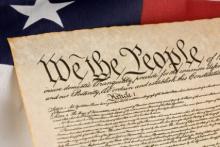
Conservative Christians are claiming that their religious freedom requires free rein for legalized discrimination.
That’s a clever argument. It seems to claim the moral high ground, to align itself with basic constitutional principles, and to put bigots in the victim role.
The argument is utter nonsense, of course. Freedom of belief has nothing to do with compelling other people to bow to that belief. If anything, freedom of belief should lead to a broad umbrella of diversity, not a parched patch of prejudice.
The First Amendment to the Constitution, after all, sought to guarantee freedom — of religion, speech, the press, assembly, and petitioning the government — not to grant freedom to some and not others, depending on the whims of the powerful or pious.

When he was asked how he would like to be remembered, former president Nelson Mandela was very clear: “I would like it to be said that, ‘Here lies a man who has done his duty on earth.’ That is all.”
It so happened that I had dinner on Nelson Mandela Square in Sandton, Johannesburg, on the night that he died. At the time I was unaware of his death — like most of South Africa I woke up with the news the next morning. The huge statue in the square and the nearby shop selling memorabilia would probably be the furthest removed from how Madiba himself would like to be remembered, but I suppose he realized that this was inevitable for someone who had become a global icon of freedom and justice.
In the famous Rivonia trial where he received a life sentence for his role in fighting the apartheid system, he said the following of democracy: “It is an ideal which I hope to live for and to achieve. But if needs be, it is an ideal for which I am prepared to die.”
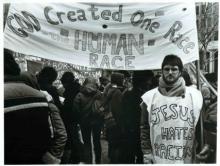
Time was when a determined minority vowed to change the nation’s collective mind about racial integration and the Vietnam War.
I was in that minority. We considered our cause just. We called our tactics “civil disobedience,” “grass-roots organizing,” “protest,” “civil rights,” “saving America.”
It’s a bit disingenuous now for us to lambaste a conservative minority for wanting the same leverage and for using the same tactics. “Civil disobedience” can’t be relabeled “obstructionism” just because the other side is using it.
Bio: "Khaipi" (real name withheld) is a peace studies professor in Thailand and a Chin religious freedom activist who served as researcher for the Chin Human Rights Organization's 2012 report detailing abuses against ethnic and religious minorities in Burma.chro.ca
1. What is at the root of the persecution of Christians in Burma?
There is an unwritten policy called “Burmanization,” which means that to be Burmese you have to be a Buddhist and you have to speak Burmese. The Chin people are not allowed to practice Christianity, and we are not allowed to study our own ethnic languages. But it’s not all about religion: They are attacking our ethnic identity because Christianity has become our identity.
Before Christianity came to the Chin people, they practiced an indigenous religion. In this religion, they believed in an Almighty One who created the world. In 1899, the very first American Baptist missionaries came to Chin state, and when they talked about the Christian God, our forefathers could adopt it very easily because it was very close to that indigenous belief. Today, when the Burmese military junta persecutes us, they say, “Okay, we want to take out this kind of Western religion.” But for us, once we believed in God, it became our religion, not a Western religion anymore.
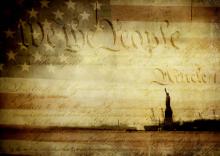
What do I love about America? I love the land, one of the most spectacularly beautiful countries in the world (and I’ve visited many of them). I love walking our long stretches of beaches, hiking our majestic mountains, seeing the desert skies, walking beside the rivers, sailing along the coasts, and visiting hundreds of lakes in my home state of Michigan, where I camped as a kid. I even love some of our big cities! “O beautiful for spacious skies, for amber waves of grain, for purple mountain majesties, above the fruited plains.” I love our many diverse cultures, including their music, their food, their art, their sports, and their particular stories and histories.
I especially love our best national values: freedom, opportunity, community, justice, human rights, and equality under the law for all of our citizens of every race, creed, culture, and gender, not just for the rich and powerful. In particular, I love our tradition and history of democracy, its steady expansion here, and how it has inspired the same all over the world. We take legitimate pride in seeing how our founding documents have been the models for many new nations.
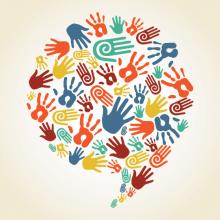
Whenever I hear the term Common Good I think of Thomas Paine’s infamous pamphlet Common Sense,which challenged the British government and the royal monarchy, but did not challenge the institution of slavery. As an African-American woman I enter the Common Good conversation cautiously because I know that in our society we have a habit of taking what is good for Western hegemony and making it the standard for everyone else.
As we pursue the Common Good, let us remember what was once considered common and good during earlier points in American history: chattel slavery, indigenous genocide, and institutionalized sexism. To truly come to a Common Good, we need to honor a diversity of voices and challenge our assumptions about what is common and what is good. Our default is to take what is good for our culture, gender, or community and make it the common standard for all. I have experienced being invited into organizations that were aiming to do good in the world, but an expectation existed that I would be silent about my unique concerns as an African woman. I know that denying my reality can never be good for my spiritual, physical, or social well being.
THE RICH AND THE REST OF US is a stirring call to arms on eradicating domestic poverty. Co-authored by Cornel West and Tavis Smiley, the self-described "poverty manifesto" seeks to convince readers that economic mobility is increasingly difficult for three demographics—the long-term poor, the new poor, and the near poor. Who are the poor in America? According to the Supplemental Poverty Measure, 150 million Americans are at or below twice the federal poverty level, which is $22,040 for a family of four.
Smiley and West invoke Dr. Martin Luther King Jr.'s legacy throughout the book. King's imprimatur legitimizes their attempt to translate the Occupy Wall Street themes of the wealthy 1 percent and the financially fragile 99 percent for a general audience. Interestingly, the book contains a motivational quality reminiscent of self-help books. Each chapter and subsection opens with an inspirational quote or pithy observation. The authors employ statistics, personal anecdotes, poems, and trend analysis to demonstrate the magnitude of poverty in America.
Making poverty history, to use a popular phrase, is an important ideal. To achieve it, we must ask: Who is responsible for eradicating poverty? The co-authors argue that engaged citizens, an active civil society, and a proactive government are the principal agents for helping impoverished families. In several instances, President Lyndon Johnson's War on Poverty represents the promise of the aforementioned three-pronged approach to mitigating the structural causes and personal implications of poverty. From 1964 to 1973, the writers note, the Johnson administration reduced the national poverty rate from 19 percent to 11 percent. Smiley and West successfully contend that government programs play an indispensable role in eradicating poverty.

I’m a fan of TIME Magazine. It offers concise, intelligent summaries and opinions on the news that help keep me up with current events. They had an interesting article in the last few weeks about the factors that seem to affect a political party’s election results in the upcoming cycle. From their findings, it’s the party perceived to be most optimistic about the nation’s future that tends to come out on top. A fascinating bit of psychology, if not necessarily scientifically rigorous in its conclusions.
And then, in the most recent issue, there’s a pages-long piece by Bill Clinton called “The Case for Optimism,” which outlined five reasons to look ahead with hope toward our collective future. Coincidence? Maybe. But the timing of the two pieces, particularly only weeks out from a presidential election, seems more than a little bit opportunistic.
Call me cynical, but never let it be said that I’m above holding the Democrats’ feet to the fire when they pander. Yes, both parties do it, but it seems to me it’s most effective when it’s a little less in-your-face about it. President Obama rode a tide of optimism into the White House four years ago, only to watch his support erode after the reality didn’t live up to the speeches in many cases. But we wanted to hear it, and it worked. So it’s no surprise they’re giving it another go-round.
But are there grounds for such high hopes?
Members of the Syrian opposition generally want a democratic government that protects the rights of minorities, though many also want a constitution based on Islam, according to a recent survey.
Their aspirations are important because the Obama administration has said it is refraining from arming the opposition, which has been pummeled by Syrian security forces for 18 months, in part out of fear of igniting sectarian violence. There's also fear that weapons would reach Islamist radicals who would threaten allies in the region.
The survey by the International Republican Institute, which trains democracy activists around the world, found high support for a government that "respectfully acknowledges religion" and treats all religions equally. The second-most popular model of choice was for a constitution "based on Islam."
"Most of the opposition is Sunni Muslims and they are democratically minded, but they want a government based on some kind of Islamic law or that follows Islamic guidelines," says Elizabeth O'Bagy, an analyst at the Institute for the Study of War who helped the survey writers find contacts in the opposition movement.

IN OUR DEMOCRACY, the first Tuesday in November is supposed to be an election. Unfortunately, it is turning into an auction, with government for sale to the highest bidders. Powerful interest groups buy clout with big campaign contributions.
Recently, the billionaire owner of the Minnesota Vikings persuaded the Minnesota legislature to build a new stadium with public funds. It was an enormous gift: It works out to a $72 taxpayer subsidy for every ticket, to every game, for the next 30 years!
This huge subsidy passed with votes from legislators of both parties, despite strong public opposition. Along with a multimillion lobbying campaign over the past decade, the Vikings owner, Zygi Wilf, with his family and lobbyists, contributed thousands of dollars to the Republican legislative caucuses and the Republican gubernatorial and legislative candidates.
They also contributed thousands of dollars to the Democratic legislative caucuses and the Democratic gubernatorial and legislative candidates. Why would they give to both parties and even to candidates running against each other? They say it is because their interests are bipartisan. Perhaps this might be more appropriately spelled “buy-partisan,” since they were trying to buy favor with both parties.
Did those contributions make a difference? Imagine what would happen if Wilf tried the same strategy to get his way at an NFL game and made $1,000 or $1,500 “contributions” to each of the referees before the next Vikings-Packers game. The NFL would kick Wilf and his team off the field and fire the officials without waiting for proof that the money affected the officiating. The conflict of interest is obvious.
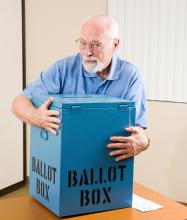
TODAY, THE RIGHT to vote is under assault across the country. From photo ID requirements to restrictions on voter registration, there are new barriers to the ballot box. While proponents of recent election law changes claim those changes are “race-neutral,” the measures will have a disproportionate impact on minority voters.
In Florida, for instance, African Americans made up 32 percent of those who voted on the Sunday before Election Day 2008, often in “all souls to the polls” drives organized by historically black churches. They were among the nearly 8 million Americans who voted early. Florida, Georgia, Ohio, Tennessee, and West Virginia have since passed legislation reducing early voting.
The tea party-infused True the Vote, reportedly bankrolled by Far Right billionaires Charles and David Koch, plans to bring lawsuits to purge the voter rolls of allegedly ineligible voters. While the fear-inducing image of non-citizens voting has little to no basis in reality, it has real consequences.
In Florida, a law passed last year effectively stopped the League of Women Voters, Rock the Vote, and similar groups from conducting voter registration drives this spring. The law imposed restrictions on voter registration volunteers and subjected groups to $1,000-a-day fines if they didn’t turn in voter registration forms within 48 hours of completion. While parts of the law were temporarily blocked at the end of May by a federal judge as unconstitutionally “harsh and impractical,” it has already prevented civic groups from registering voters for some months. Registration drives encourage voting among the young and people of color, who often vote Democratic.
THE ANONYMOUS DEATH threats phoned to Archbishop Pedro Barreto and others in March told them to stop speaking out about the foreign-owned metals smelting plant in La Oroya, Peru.
Barreto, a Catholic archbishop of the Andean region that includes La Oroya, has been a leading advocate for the health of the 35,000-person town, which the plant has made one of the world’s most contaminated places: 99 percent of children there have dangerous levels of lead in their blood.
However, in an unconscionable move made possible by the 2009 U.S.-Peru trade agreement, it is the polluter who claims to be the victim. The massive New York-based holding company Renco Group Inc., whose subsidiary Doe Run Peru owns the smelter, last year filed an $800 million trade-tribunal lawsuit against the Peruvian government, claiming it violated the company’s rights by enforcing environmental regulations in La Oroya.
It’s one of a growing wave of such arbitrations being filed all over the world by extractive-industry foreign investors. In a similar case, the transnational corporation Pacific Rim has filed a $70 million case against El Salvador, after local communities and activists—four of whom have been murdered—opposed gold mining that could contaminate one of the country’s largest rivers.
The suits circumvent nations’ environmental laws by exploiting so-called “investors’ rights” chapters of trade agreements; such provisions are common in bilateral trade agreements, such as the U.S.-Peru pact, and regional agreements such as NAFTA.
Many people who were hopeful for change in the wake of Barack Obama's election have become disillusioned by the rancorous politics of the last few years. What does it take to sustain the struggle for justice over the long haul?
Initial results from Egypt’s first round of elections produced an unexpectedly large showing for Islamists. The Freedom and Justice Party of the Muslim Brotherhood gained approximately 37 percent of the seats selected from political party lists, in line with predictions. The real shocker was the 24 percent vote obtained by the al-Nur party of the Salafi movement. The Salafis are extreme conservatives who favor restrictions on the role of women and Saudi-style controls on public morality. Liberal-left parties in the various party blocs gained about 37 percent. The results are very preliminary, with two more rounds of voting still ahead.